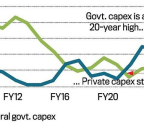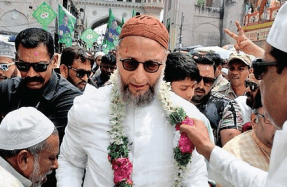Human trafficking for sex: Thousands live in slavery while society remains silent

Farakh Ali Gayen, 22, is just over five feet tall, appears quite frail and in general cuts an unassuming figure. He is the son of a teashop owner in South 24 Parganas, the largest district in West Bengal and one of the 250 "most backward districts" in the country in 2006. But Farakh was doing alright for himself. He had Rs 13 lakh in his bank account, a small fortune for a young man in this rural district.
Now in police custody, Farakh admits he kidnapped and sold girls for a living. The younger, the better. He's not the only such modern day slaver either since 2014, 16,000 girls have gone missing from South 24 Parganas. In the past 18 months, according to NGO Shakti Vahini, 300 girls have been rescued and 50 traffickers arrested. Kailash Satyarthi, child rights activist and Nobel laureate, began a 35 day march across the country on September 11 to demand action against such trafficking. Satyarthi said he was waging an "all out war on rape, abuse, and trafficking". The sexual exploitation of children, he added, "[is] a moral epidemic...Our silence is breeding more violence". Last month, in a meeting with President Ram Nath Kovind, Satyarthi called for a national children's tribunal to be set up.
Farakh confesses it was the prospect of easy money that attracted him to the business of slavery. He envied his sister's lifestyle in Delhi expensive flat, fancy clothes and, always, bundles of cash at hand. "I was told I could also end up being rich like Radhe, my brother in law," Farakh says. "All I had to do was deliver young girls from the village and I would make Rs 20,000 to Rs 50,000 for each." He cruised around local villages on a Hero Karizma motorbike, flashing his Rs 40,000 mobile phone, his watch and sunglasses. For girls in an overwhelmingly poor area, he embodied a dream, the possibility of an escape to a better life.
Babita, 16, was a typical victim. Farakh got her number from a mobile recharge point traffickers, it appears, routinely procure such information for as little as Rs 100 per number. It took him 15 calls to get Babita to meet him at Mathurapur railway station, from where she was taken to Delhi. Like many victims of trafficking, Babita was unconscious, knocked out by something slipped into a drink or snack. In Delhi, Farakh handed her over to his sister, who sold Babita to a brothel in Agra. "I was kept in a building with small rooms and no
You’re reading a preview, subscribe to read more.
Start your free 30 days





